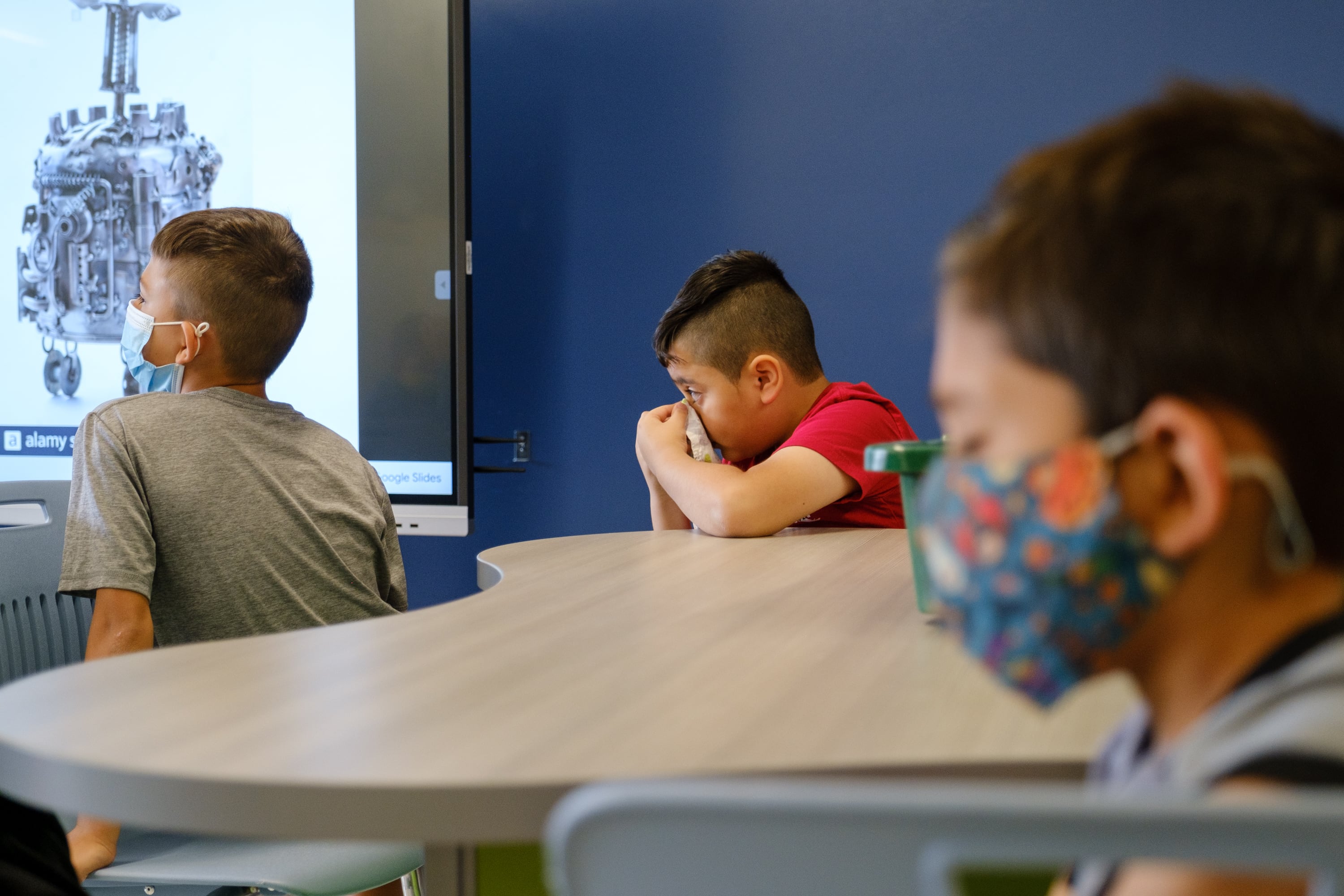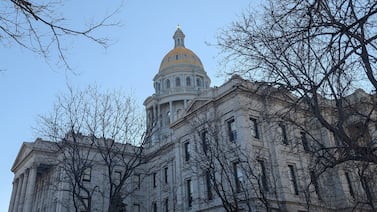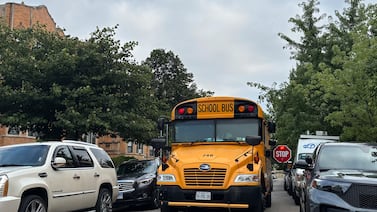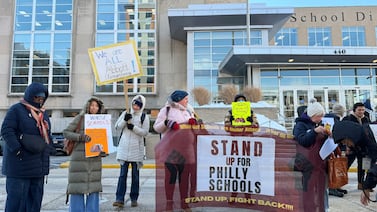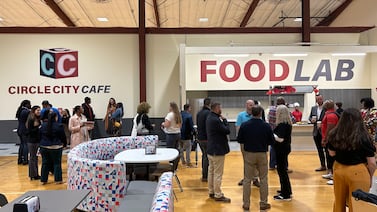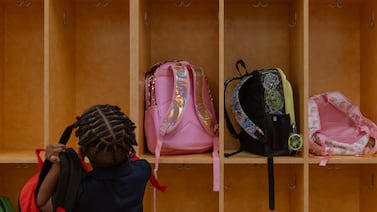Sixty percent of the country’s 500 largest school districts currently require students and staff to wear masks. But as the pandemic drags on, some want to change that.
This week, NPR described a “growing chorus of pediatricians, neuroscientists, special education teachers, and parents who are concerned about the effects of prolonged masking on children.” The Atlantic, the New York Times, and the Washington Post all recently published opinion pieces questioning the need for masks in schools.
Advocates for strict mask rules — which include the Centers for Disease Control and Prevention, the American Academy of Pediatrics and the U.S. Department of Education — argue that they reduce the spread of COVID-19 in schools, helping them remain open. Critics say the evidence for masks’ effectiveness is weak and the harms of masking on children are growing clearer. They also point out that a child’s risk of becoming seriously ill from COVID is relatively low.
“Masking was a necessary inconvenience early on and in short stints was fine,” Joseph Allen, a professor at Harvard’s school of public health, wrote in the New York Times in December. “But to think that two years of masking has no impact on socialization, learning and anxiety is shortsighted. Kids are resilient but not endlessly resilient.”
This push, though, may run up against popular opinion. A Chalkbeat review of over a dozen polls since this summer found that support for masking in schools consistently outstrips opposition among parents and the general public.
That could change, of course, and a substantial and vocal minority of parents have opposed masking requirements. The existing polling, though, suggests that masking rules might be difficult to quickly dislodge.
Most recently, a January poll conducted for the New York Times found that 68% of Americans backed required masking for students in order to try to control the spread of the omicron variant. A separate survey from December found that only 28% of adults supported in-person schooling without masking during a COVID spike.
An EdChoice poll from last month showed that 50% of parents supported school mask requirements for children ages 5-11, while 29% believed that masks should be encouraged. Only 21% opposed encouraging or mandating masks.
That level of support for masking in schools stretches back to this summer, well before the omicron case spike, although the magnitude varies.
For instance, an Education Next poll of parents in June 2021 found that 47% supported masking requirements of students, compared to 35% who opposed them. (The rest weren’t sure). Similarly, an Associated Press poll from July showed 52% of parents backed mask mandates for students, while 28% were against them.
A National Parents Union poll in September found even stronger support: 70% of public school parents supported requiring all students to wear masks and another 11% thought that unvaccinated children should have to wear masks.
Polls from Axios, Gallup, Morning Consult, and USA Today have also found majority support for masking of some kind; so have statewide polls in Florida, Tennessee, and Virginia. Majorities of teachers and parents of students with disabilities also support masking. The polls do show a consistent partisan divide, with Republicans much more skeptical of masking than Democrats.
“I understand personal choice, I understand personal freedom. But when it comes to public health, we should all be looking out for each other,” one New York City parent told the Associated Press. “The best protection so far is to mask up and vaccinate.”
Even if schools do roll back mask rules, the polls suggest substantial numbers of teachers and students are likely to continue to wear masks voluntarily. It’s also possible that lifting masking rules could lead a small number of parents to keep their kids home out of COVID concerns.
In Virginia, Gov. Glenn Youngkin is seeing fierce pushback on his effort to lift masking requirements; he argues that parents should get to make the ultimate decision for their child. But most of the state’s districts are defying his order, and a handful of parents are suing Youngkin over the effort. Polls have shown a majority of Virginians support mask rules.
“Most [parents] disagree with what he is doing,” Mark Rozell, dean of the Schar School of Policy and Government at George Mason University, told the Washington Post. “He seems to be listening primarily to the parents of a particular political stripe — the ones who made the most noise in the heat of a political campaign but in no way represent a consensus among parents of public school children.”
At the same time, polling offers only a limited and imperfect snapshot of public sentiment. Perhaps opposition to masking in schools will grow as case counts drop and advocates make their case that masks are disrupting learning. Polls also don’t capture the possibility that outnumbered opponents of masking rules are more motivated or more politically influential than supporters.
Polls may also reflect parents’ inclination to trust the public health measures their child’s school implements. That could mean parents will be amenable to changes in masking rules if local school officials make that call, too.
Meanwhile, much of the research on masking in schools has been low quality, but evidence outside schools suggests that masks can help reduce spread in indoor settings. One high-quality study found that promoting the use of surgical masks in Bangladesh reduced COVID spread by 11%, although cloth masks did not make a clear difference.
At the same time, many educators have reported that masking can make many important aspects of schooling more challenging, including forming social relationships and hearing a teacher clearly. There have been few, if any, high-quality studies on masks’ educational effects either.

